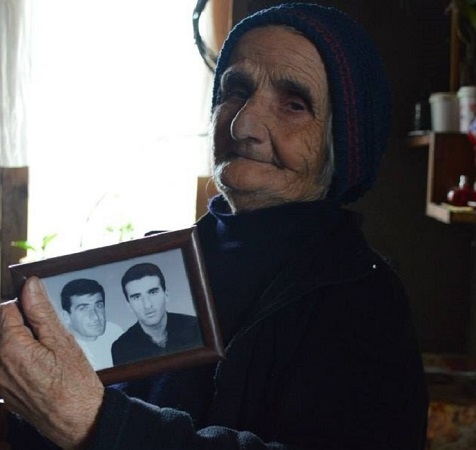UN Adopts Right of Return Resolution for Georgian IDPs
NEW YORK – The United Nations General Assembly on Tuesday adopted a Georgia-sponsored resolution reiterating the right of return for the more than 250,000 Internal Displaced Persons who were driven from their homes during a series of Russian-backed separatist wars in Georgia’s breakaway regions Abkhazia and South Ossetia.
The vote passed with 76 in favor and 15 against, with 64 abstentions.
The resolution fully defines who qualifies as an internally displaced person or refugee and demands that their property rights be respected by both the rebel forces and their Russian patrons.
The document also stresses the urgent need for unimpeded humanitarian access to all those residing in conflict-affected areas throughout Georgia.
The UN General Assembly has passed similar informal resolutions ever since Georgia fought a brief war against Russia in 2008. Georgia says the goal of annually pushing the resolution is to keep the issue on the international agenda.
“For eight consecutive years, the General Assembly has adopted similar motions with an increasing number of votes in favor and an encouraging amount of dynamic of support. Countries from around the world have voted for the resolution due to its stance on human rights,” Georgia’s UN Ambassador Kakha Imnadze, told the assembly.
Imnadze said the murder of Giga Otkhozoria - a Georgian man from Georgia’s western Gali Region, who was shot by Abkhaz border guards while delivering food to his family - was a reminder of the human cost endured by internally displaced people.
Imnadze accused the separatist authorities in Abkhazia and South Ossetia’s of creating grounds for discrimination with the recent round of integration treaties signed by the Russian Federation and the rebel governments in South Ossetia and Abkhazia. He said the laws on the status of foreigners were aimed at further isolating Georgians, with the goal of forcing them to leave the occupied territories.
Joining Russia in their opposition to the resolution were Moscow’s traditional allies Armenia, Belarus, Burundi, Cuba, North Korea, Laos, Nauru, Nicaragua, South Sudan, Syria, Venezuela, Vietnam and Zimbabwe.
Turkey, which had always abstained before 2015, again voted in favor.
Speaking to the press immediately after the vote, a Russian Federation representative described the initiative as counterproductive and a politically motivated attempt by Georgia to enhance “anti-Russian rhetoric”.
“The resolution would have made sense if representatives of Abkhazia and South Ossetia had been involved,” he said, “ but we shouldn’t ever expect that to happen”.
Immediately following the collapse of the Soviet Union, Russian-backed rebels in Abkhazia and South Ossetia broke away from Georgia. Georgian government forces fought three wars against Russian-backed separatist forces in Abkhazia and South Ossetia between 1991-2008.
The wars left thousands dead and led to the ethnic cleansing of a quarter of a million ethnic Georgians.
After effectively occupying more than 20 per cent of Georgia’s territory following the 2008 war, Russia recognized South Ossetia and Abkhazia as independent states.
International law and the United Nations continue to state that the regions remain parts of Georgia.
By Tamar Svanidze
Edited by Nicholas Waller
Photo: MRA












